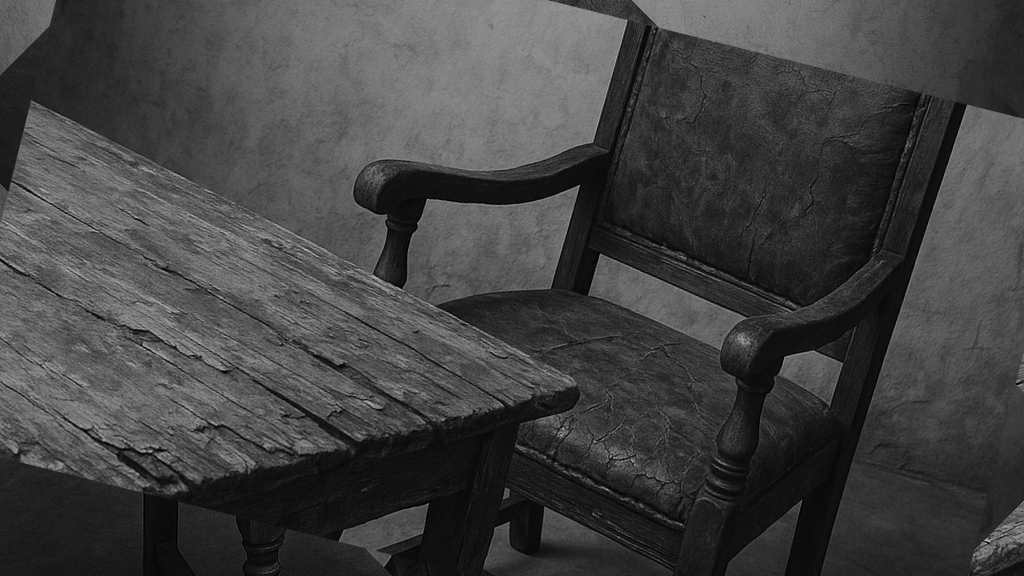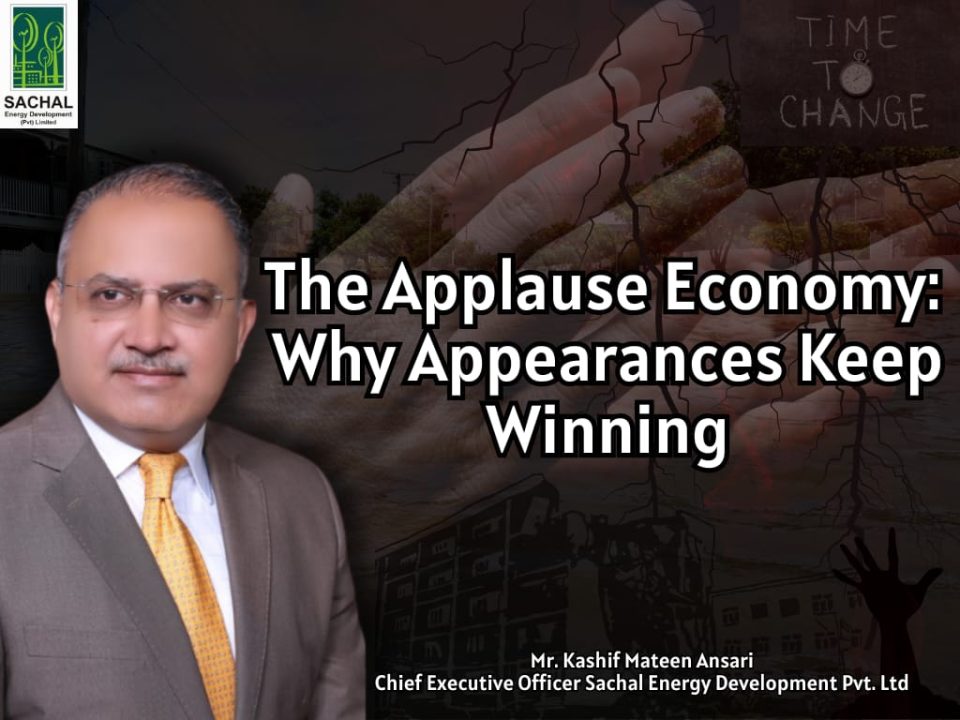
NUCLEAR VS RENEWABLES: FRENEMIES IN THE CLEAN ENERGY TRANSITION?
June 12, 2025
The Applause Economy: Why Appearances Keep Winning
July 23, 2025Every now and then, you hear a story.
Someone who once ruled the screen. A voice that echoed in stadiums. A leader who shook nations. Gone.
Not just gone in the way we all go, but faded. Forgotten. Alone.
And when it happens, it shakes something loose inside you. Not because it’s surprising—death is the only certainty we’ve ever had—but because of how quickly we forget. A person who once commanded crowds, trends, power… reduced to a passing headline or a whispered memory. Sometimes, not even that.
What does that say about us? About this world we’ve built, where you can be everything—and still disappear into nothing?
It’s been gnawing at me lately. A struggle inside my head that I can’t quite silence. What is all this for? This chase for validation, wealth, power, legacy. Is it meaning, or is it momentum we confuse with purpose?
We grow up watching people who “made it.” Award winners, billionaires, influencers, prime ministers. And we imagine they’ve cracked the code. That they know something we don’t. But do they?
Behind all the glitz, there’s a haunting truth: most of the world’s noise is temporary. The crowds you draw today will cheer for someone else tomorrow. The followers, the applause, the headlines—they’re all rented. None of it belongs to you.
History is a graveyard of forgotten greatness.
I sometimes think about the actors whose faces once lit up living rooms, whose names were etched into public memory—now unrecognizable. Cricketers whose sixes made us roar, now walking through airports unnoticed. Presidents, poets, professors—all swallowed by time.
That’s the future waiting for all of us… unless we’re playing a very different game.
Let’s be honest. Most of us are running. Fast. Desperately trying to outpace irrelevance.
We measure ourselves by titles, followers, money, awards. It’s the global Olympics of self-worth—and we’re all competitors. There’s always someone richer, someone more eloquent, someone younger doing what you do, but better. And that eats away at your peace.
Seneca warned us two thousand years ago: “It is not that we have a short time to live, but that we waste much of it.”
We scroll endlessly, work tirelessly, compete ruthlessly. All to get to some mythical “there.” But even when we get “there,” the finish line moves.
The saddest part? Even if you win this race, you’re still in it. And rats don’t retire in peace—they burn out.
Here’s where the struggle gets personal.
I’ve spent years building things. Careers. Companies. Relationships. Reputations. And yet, with every passing season, I feel this tug: is this it? Is there a deeper gear I’m meant to shift into? Something slower… but more real?
What will I have when the titles are gone? When the phone stops buzzing? When the invites dry up?
That voice inside me is relentless: “What is the measure of a life well lived?”
I don’t want my eulogy to be a LinkedIn profile. I want it to be a story. One where people say, “He made us feel seen. He gave more than he took. He slowed down when the world sped up.”
But how?
Whenever I feel lost in the noise, I go back to those who lived beyond it.
Take Imam Al-Ghazali. At the peak of his fame—lecturing, writing, surrounded by scholars—he walked away. Just vanished. He chose a life of inner reflection over public adoration. And in solitude, he wrote Ihya Ulum al-Din, one of the greatest works in Islamic spirituality.
He understood what we forget: external success without inner grounding is a recipe for spiritual bankruptcy.
Or Abdul Sattar Edhi—Pakistan’s quiet giant. No suits. No PR. Just a beat-up van and a will to serve. He lived humbly, died simply, and left behind the most profound legacy—not because he amassed wealth, but because he became wealth for others.
Even outside our tradition, there’s inspiration. Seneca. Marcus Aurelius. The Stoics. People of unimaginable power who constantly reminded themselves: Memento Mori—remember, you will die. Not to depress, but to prioritise. To remind us that virtue, not vanity, is the only currency that outlives us.
So where does that leave me?
I’ve begun to question not just how I live, but why. What does a meaningful day look like? What does a meaningful life look like?
Maybe it’s smaller than we think. Maybe it’s teaching your child something that shapes them. Making someone laugh on a hard day. Forgiving when it’s easier to rage. Choosing principles over popularity. Listening when you want to speak. Giving when no one’s watching.
It’s not glamorous. It won’t trend. But it’s real.
And here’s the brutal truth: out of 8 billion people, most of the world won’t care when we’re gone. That’s not pessimism. That’s liberation. Because once you accept that, you stop performing for the crowd—and start living for your soul.
There’s a Hadith that echoes in my heart: “The most beloved of people to Allah are those who are most beneficial to people.” Not the richest. Not the loudest. Just the most useful. The ones who heal. Who build. Who serve. Quietly.
I want to be more useful. Less performative.
I want to build things that don’t need my name on them. I want to leave fingerprints on hearts, not just spreadsheets.
That doesn’t mean I reject ambition. But I want aligned ambition. The kind that lifts others as I climb. The kind that lets me sleep peacefully, not endlessly strategize.
When the lights go out—and they will—what will remain?
A house? A portfolio? An archive of posts and selfies?
Or a son who prays for me. A student who teaches what I once taught. A person I once helped, who helps another, who helps another.
That’s the chain I want to be part of. That’s the echo I want to leave behind.
So, I’m trying. Trying to shift. To live less loudly but more deeply. To seek God’s pleasure more than man’s applause. To walk humbly. To age gracefully. To exit quietly, leaving behind something that matters.
In a world obsessed with legacy, maybe the best thing we can do… is to stop obsessing, and just be.
Be kind. Be useful. Be present.
Because one day, the race ends. And when it does, I hope I’m not remembered for how fast I ran… but for how gently I walked.





